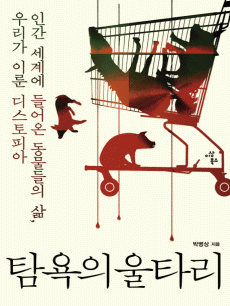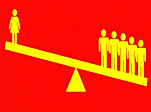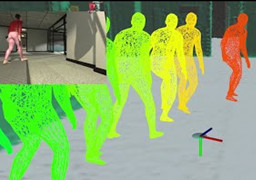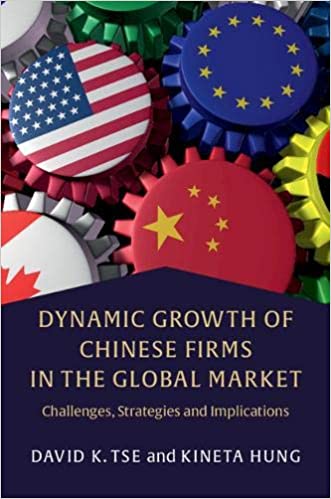|
 |
мқёкіөм§ҖлҠҘмқҳ мӢӨм ңм Ғ мң„нҳ‘мқҖ л¬ҙм—Үмқёк°Җ? |
|
| мқёкіөм§ҖлҠҘмқҙлқјлҠ” мғҲлЎңмҡҙ кё°мҲ мқҳ нҷ•мӮ°м—җ лҢҖн•ҙ мҳӨлҠҳлӮ л§ҺмқҖ мӮ¬лһҢл“ӨмқҖ мҡ°л Өмқҳ мӢңм„ мқ„ лҚҳм§Җкі , мӢ¬м§Җм–ҙ л‘җл ӨмӣҢн•ҳкё°к№Ңм§Җ н•ңлӢӨ. н•ҳм§Җл§Ң мқҙлҹ¬н•ң л‘җл ӨмӣҖмқҖ мҳ¬л°”лҘё кІғмқјк№Ң? |
|
|
 |
нғҗмҡ•мқҳ мҡёнғҖлҰ¬ |
|
| АъАЪ | л°•лі‘мғҒ |
| ГвЖЗ»з | мқҙмғҒл¶ҒмҠӨ |
|
 |
мһ¬м•ҷкіјлҸ„ к°ҷмқҖ м•„мӢңм•„мқҳ м„ұ비 л¶Ҳк· нҳ• |
|
| л№„м •мғҒм Ғмқё нҳ„лҢҖм Ғ лӮҷнғң мӢңмҲ , м „нҶөм Ғмқё лӮЁм•„м„ нҳёмӮ¬мғҒмңјлЎң м•„мӢңм•„м—җлҠ” 충격м Ғмқё м„ұ비 л¶Ҳк· нҳ•мқҙ л°ңмғқн•ҙмҷ”лӢӨ. мҳӨлҠҳкіј лҜёлһҳм—җ мқёлҘҳм—җ нҒ° нғҖкІ©мқ„ м•Ҳкёё кіјкұ°мқҳ мӢӨмҲҳ мӨ‘ мқҙкІғл§ҢнҒј нҒ° кІғмқҙ м—ҶлӢӨн•ҙлҸ„ кіјм–ёмқҙ м•„лӢҗ м •лҸ„лӢӨ. м§Җм •н•ҷм Ғ м•Ҳм •м„ұ, кёҖлЎңлІҢ кІҪм ңм„ұмһҘ, мӮ¬нҡҢм Ғ кІ°мҶҚл Ҙмқҙ мҙқмІҙм Ғмқё мң„кё°лЎң лӮҙлӘ°лҰ¬кі мһҲлӢӨ. мқҙ мң„кё°лҠ” м•„мӢңм•„м—җл§Ң көӯн•ңлҗҳм§Җ м•Ҡмқ„ кІғмқҙлӢӨ. <br> |
|
|
 |
[GlT] MITк°Җ лЎңлҙҮмқҳ мғҲлЎңмҡҙ кіө |
|
| м»ҙн“ЁнҢ… мҙҲкё°л¶Җн„° мӮ¬лһҢл“ӨмқҖ вҖңл¶Җм—Ңм—җ к°Җм„ң м»Өн”ј мһ” к°Җм ёмҷҖвҖқмҷҖ к°ҷмқҖ, мҳӨлҠҳлӮ м•„л§ҲмЎҙмқҙ м ңкіөн•ҳлҠ” м•Ңл үмӮ¬(Alexa) мқҢм„ұ비м„ң мҲҳмӨҖмқҳ кі лҸ„мқҳ лӘ…л №мқ„ л”°лҘҙлҠ” лЎңлҙҮ н•ҳмқёмқ„ мғҒмғҒн•ҙ мҷ”лӢӨ. к·ёлҹ¬лӮҳ MIT кіөн•ҷмһҗл“Өмқҙ м„ӨлӘ…н•ң л°”мҷҖ к°ҷмқҙ, мқҙлҹ¬н•ң лҶ’мқҖ мҲҳмӨҖмқҳ мһ‘м—… мҲҳн–үмқҖ лЎңлҙҮмқҙ мқёк°„мІҳлҹј л¬јлҰ¬м Ғ нҷҳкІҪмқ„ мқёмӢқн• мҲҳ мһҲм–ҙм•ј н•ңлӢӨлҠ” кІғмқ„ мқҳлҜён•ңлӢӨ. |
|
|
 |
Dynamic Growth of Ch |
|
| АъАЪ | David K. Tse мҷё |
| ГвЖЗ»з | Cambridge University Press |
|






 [597]ұЗ
[597]ұЗ 




